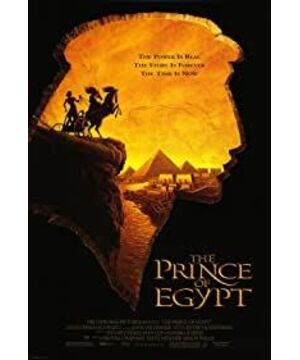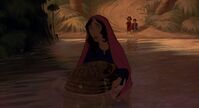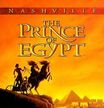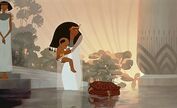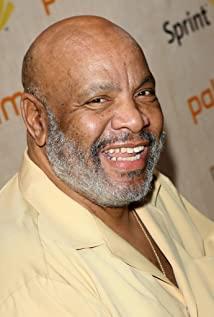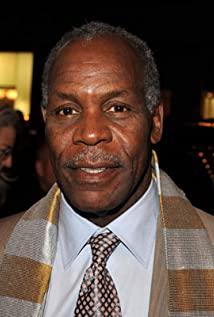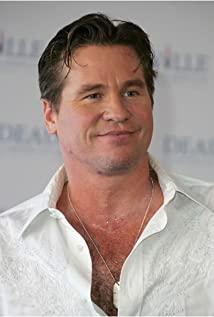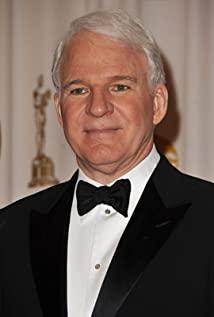Moses' mother couldn't bear to kill the handsome Moses, so she carried him down the river with a small bamboo basket, letting everything comply with the destiny of heaven. The elder sister reluctantly followed the bamboo basket until she saw it drifting into the palace through ups and downs. The queen picked up little Moses and changed Moses' fate for the first time, turning him from a slave into an Egyptian prince. Moses, who lived a happy life in the palace, didn't know the suffering his fellow Hebrews endured at this time. He grew up with his brother Ramses and enjoyed the admiration of thousands. The reunion with his sister prompted a second change in Moses' fate. Moses could not bear the cruel slavery of the Egyptians to the Hebrews, and at the same time exiled himself for killing the overseer by the wrong hand, so he came to Midian. In Midian, Moses married Zipporah and lived a simple life for a while. The third turning point was the call of God: God commanded Moses to use the power bestowed by God to lead the suffering Hebrews out of slavery in Egypt. Moses did not resist fate, holding a magic wand and meeting the Egyptian pharaoh-Ramses. The two brothers are their own masters, so a battle begins. After experiencing blood plagues, frog plagues, lice plagues, livestock plagues, boils, hail plagues, locust plagues, dark plagues, and warnings to kill the eldest son, the end of the story is naturally that Moses successfully led the Hebrews with a magic scepter Separate the Red Sea and come to a land flowing with milk and honey to live and multiply.
The blueprint for this story comes from the "Exodus" in the "Bible • Old Testament". There are not many changes in the story, but the theme focuses on the brotherly grievances between the protagonists Moses and Ramses. "The film uses bold imagination to interweave the spirit of Christian salvation and the grievances between brothers, and supplemented by Hollywood-style entertainment, so that the whole story is full of enjoyable visibility and endless dramatic tension." The
protagonist Moses From slaves to princes to missionaries, this legendary story that has been chanted by people for thousands of years is not what I pay attention to. What I noticed is the gods who have never directly appeared in the film.
Needless to say, the magnificent scenes in this epic magnum opus are impressive: the horror created by the blood disaster, the plague of frogs, lice and flies, raging and rapid, the plagues of livestock, boils, and hail. The panic of the locust plague, and the weirdness and horror of the dark plague. It is not so much that it allows us to "feel the omnipresent and holy power of Almighty God through the screen", but it allows us to experience the fear of the "self and eternal" God.
This is what shocked me.
After Moses met God's call, I have been observing his expression. In my opinion, I did not see the changes that faith had caused in him, but wishfully thought that Moses was helpless and perplexed.
The suffering Hebrews naturally hope that there will be a hero or a god who can save them from the sea of suffering. So Moses came to them with the will of God. Moses was full of respect for God, at least this can be seen in his piety. As for why the Almighty God wants to save the people with this extremely evil method, I really can't figure this out. It seems that God is also human. He must allow people to regard him as the highest symbol. His will is beyond doubt. Obviously, the question I am thinking about goes beyond the movie itself, but a difficult question related to religious beliefs.
A netizen commented, "If the freedom granted by such a despising, paranoid and tyrannical God, I would rather not, because this arrogant master does not understand the value of life and freedom to people, and that is not a powerful one. The gift given to the small is the realization of strength, dignity and love, an existence that even its creator cannot deprive."
A very straightforward evaluation, I made my point of view before I doubted God's original intention.
I doubt Moses' helplessness. When Moses told the Hebrews that the only eternal thing in the world was faith, I began to wonder whether the faith he was talking about was really this religious faith. And God, whether he should be believed by us.
In addition, the production of the film is really brilliant. I have to admit that the pictures, characters, music, etc. are all impeccable.
We can clearly see his mentality in different periods from the portrayal of Moses's face. When Moses was still running around in the palace and causing trouble, we saw a well-defined, dark and healthy face, because at this time Moses was innocent. Moses, who lived in Midian, had his face visibly thinner. We saw the towering cheekbones and sunken eyes, and felt a sense of vicissitudes from it. Moses, who was struggling with Ramses, often revealed a kind of forbearance (it should be a sense of fortitude to faith), because it also involves the question of God just mentioned, so I don’t know this is my unique personal view. Or is it the error of creation, or the good intentions of the creator. At least, it is obvious to distinguish the difference. Different people have different opinions.
The theme song "When you believe" can be described as a masterpiece. It is not easy for the two big queens, Whitney Houston and Mariah Carey, to get together, and the creative success has added a lot to this. This song won the 71st Oscar for best original song, and it is also a trend that it has become a classic.
Also worthy of attention is the theme of the film. Commercial films cannot avoid the drive of purpose, so there are basically two themes entangled in this film. In order to be popular, the film successfully introduced the theme of brothers and grievances, which is suitable for all ages; for the pursuit of awards, the theme of the power of religious belief. In this way, the film does not lose its cultural heritage, but also full of human feelings. It's a pity that the limitation of the story of this film greatly reduced the entertainment, lost the audience of children, and laid the foundation for adult animation.
Sometimes watching movies, especially animation, may be more suitable for taste with a mood of appreciation and play. But since I'm puzzled, it might be a good thing to express it.
The above is what I thought after watching "Prince of Egypt". Some film reviews have a tendency to alternate with impressions, which makes it a bit messy. But it was a real idea, so he breathed out his heart and soul, and it became a piece of writing.
View more about The Prince of Egypt reviews


